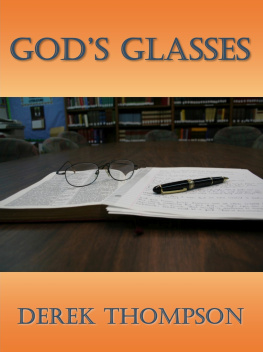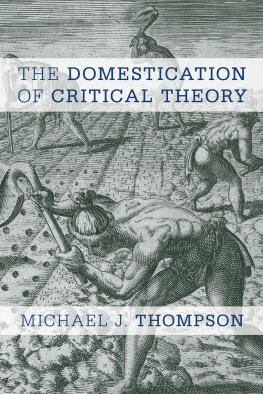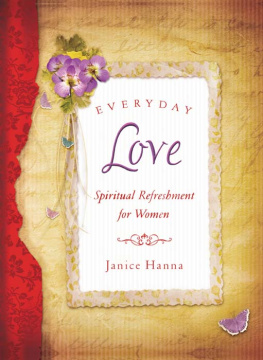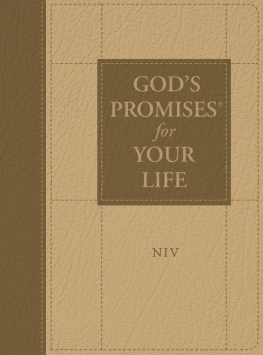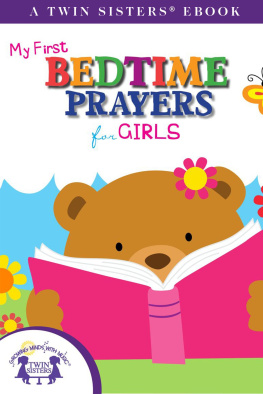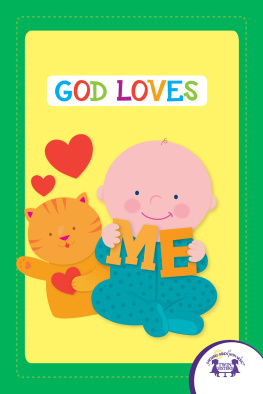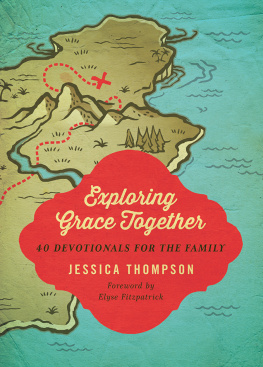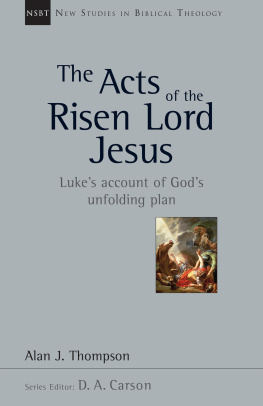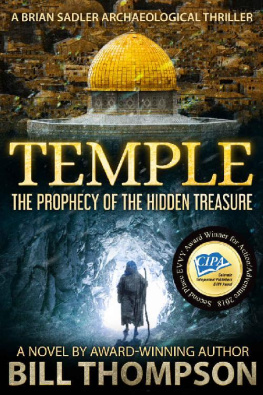Thompson - Gods glasses
Here you can read online Thompson - Gods glasses full text of the book (entire story) in english for free. Download pdf and epub, get meaning, cover and reviews about this ebook. year: 2015, publisher: Author, genre: Religion. Description of the work, (preface) as well as reviews are available. Best literature library LitArk.com created for fans of good reading and offers a wide selection of genres:
Romance novel
Science fiction
Adventure
Detective
Science
History
Home and family
Prose
Art
Politics
Computer
Non-fiction
Religion
Business
Children
Humor
Choose a favorite category and find really read worthwhile books. Enjoy immersion in the world of imagination, feel the emotions of the characters or learn something new for yourself, make an fascinating discovery.
Gods glasses: summary, description and annotation
We offer to read an annotation, description, summary or preface (depends on what the author of the book "Gods glasses" wrote himself). If you haven't found the necessary information about the book — write in the comments, we will try to find it.
Version 7, 2015
Gods glasses — read online for free the complete book (whole text) full work
Below is the text of the book, divided by pages. System saving the place of the last page read, allows you to conveniently read the book "Gods glasses" online for free, without having to search again every time where you left off. Put a bookmark, and you can go to the page where you finished reading at any time.
Font size:
Interval:
Bookmark:
by
Derek Thompson
B.E., Dip. Th.
Dedicated to my l-o-n-g-suffering wife, Margaret,
and my daughters, Cally and Rhona.
Bible quotations are from the New Revised Standard Version. Bible references are given in the form: [Book Title] [Chapter#]:[Verse#] .
Gods Glasses
Copyright 2001 Derek Philip Thompson
Revised 2003, 2005, 2007 2011 & 2012.
This edition 2015.
APA Reference:
Thompson, D. (2015) God's glasses.
Publisher: Author.
ISBN: 9781310886454 (ePub edition)
All or part of this document may be freely reproduced or distributed provided it is not changed and there is acknowledgement of the source.

I am not implying by the title God's Glasses that God is getting old and in need of glasses, even if God is called the Ancient of Days in the Bible. Neither, does God need a hearing aid or a walking stick. After all, God invented eyes, ears, and legs in the first place.
However, God wants to be a part of our lives and God is not deterred by our frailties or anything else. That means, in my case, God would join me in using my glasses to read this. Moreover, God invites us to look through his glasses. It just takes a little faith on our part and a desire to see things from Gods point of view. God wants to be friends with us. In the following pages, I have written about some of the things I have glimpsed through Gods glasses.
I am involved in a combined church ministry called Five Islands Christian Ministries ( www.5icm.org.au ) which works to promote church unity in the Illawarra area. I worked as an electrical engineer and project manager in public works and study theology in retirement.
Derek Thompson
Albion Park, NSW, Australia.

I used to know someone who would often say Oh my God in moments of surprise or dismay, but then, because she knew I was a Christian, quickly apologise so that she did not offend me. This was before OMG became a standard abbreviation. It occurred to me that there was an important truth in what she was saying. All people have at least this one thing in common they belong to God. Of course, not everyone would agree with this. There are atheists who believe that God does not exist and, even among those who believe in God, there is much disagreement on what God is like, but if we are going to talk about God, we at least need to agree that we mean by God the creator of all things.
Now if God created everyone, we are all, in a sense, his children, no matter what our attitude is to him. Even among those who believe in God as the Creator of all things, many would not think of God as their divine father. But what we think about God is not as important as what God thinks about us. To God, we are like children who have rebelled against their father and run away to seek their own way in the world, not that everyone who has left the family home is in rebellion against their parents. The God of Christianity is like a father who wants his rebellious children to come back home into a cordial relationship with him, no matter what they have done, or what kind of life they were living.
People have many different views about God, and our view of God has implications for our attitudes to life. Only the Creators view of reality is certain to be true. So Gods view of things is the one that counts. Our view of reality is at best, partially true and at worst, completely wrong. Even though we may not be able to know all truth, we can know some truth, and hopefully we are always learning more. For a Christian, learning about reality is ultimately learning about God and the way he sees things. Reality embraces all things (personal and impersonal) but the truth about reality is itself, personal, because God is personal. God made us in his image so he could relate to us personally. Yet such notions as the force be with you of Star Wars, or materialistic evolutions survival of the fittest, or Freemasonrys Great Architect of the Universe all reduce God to something less than he is. We regard ourselves as personal. We would not think of ourselves as mere forces, or animated bodies, or grand ideas. God, our Creator, could not be anything less than we are.
God has given us personalities and spirits capable of receiving his truth. We can know something about reality and the God who created it. More importantly, we can relate to God himself. Knowing God means more than simply knowing things about him. We can know him so well that we would trust him with our lives. In a relationship with someone, we try to know them and understand how they see things. God is someone worth knowing and befriending. In knowing God, we discover just how good, loving, and trustworthy he is.

There are many religions in the world vying for our allegiance. Only one at most can be true. If anyone thinks that all religions teach essentially the same thing, they could not have studied them very closely. So, how can we find the truth? Some have felt that we can never really know the truth about anything. In order to prove this position however, they must argue from some undeniably true premise, so it is a self-defeating argument. It is enough to make one sceptical about scepticism. But where can we find truth? Creation itself is a source of truth since it reflects the character of its Creator. The problem is that creation is an ambiguous source of truth. It is in need of interpretation, and creation is so pervaded by evil that it makes the truth hard to find.
Moses wrote, The secret things belong to the LORD our God, but the revealed things belong to us and to our children forever ( Deuteronomy 29:29) . For Christians, the Bible is a source of revealed truth. It is not set out like a textbook about God or about how we should live our lives. The Bible is a collection of writings (called Scriptures) consisting of many different literary genres, written by many different authors (about 40), over a long period (some 1,500 years). The only thing the writings have in common is that they are inspired by God. As we mine precious gems from the earth, we have to mine the truth from the Bible. The Bible is divided into two parts. The first section is called the Old Testament, which is made up of those Scriptures written before Christ (B.C.). The second section is the New Testament, which consists of those Scriptures that were written after the life of Christ in the first century (A.D.). The Old Testament was written in the Hebrew language and the New Testament in Greek.
The teaching found in the Bible is not just information to satisfy our intellectual curiosity, nor does the Bible give rules to follow in order to win Gods approval and lead a successful life. The Holy Books of other religions do not rise above providing us with good advice. However, in the Bible we learn something about God that he does not reveal elsewhere. We discover that God loves the people he created and wants to befriend them. This is in contrast to the gods of other religions who demand allegiance and obedience and seek control over people. The God of the Bible, seeks to love and care for his people. God does not try to coerce people to get his own way. Nor does he want us to try to manipulate him to get our way. Loving relationships cannot be brought about by force or manipulation, but grow where there is freedom. Freedom is an attribute of a personal God, along with such things as omnipotence (all-powerful), omnipresence and immanence (which means he is everywhere all the time), and transcendence over creation.
Font size:
Interval:
Bookmark:
Similar books «Gods glasses»
Look at similar books to Gods glasses. We have selected literature similar in name and meaning in the hope of providing readers with more options to find new, interesting, not yet read works.
Discussion, reviews of the book Gods glasses and just readers' own opinions. Leave your comments, write what you think about the work, its meaning or the main characters. Specify what exactly you liked and what you didn't like, and why you think so.

